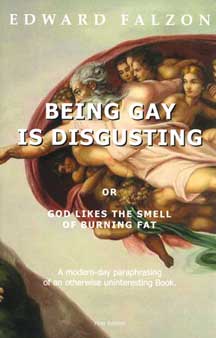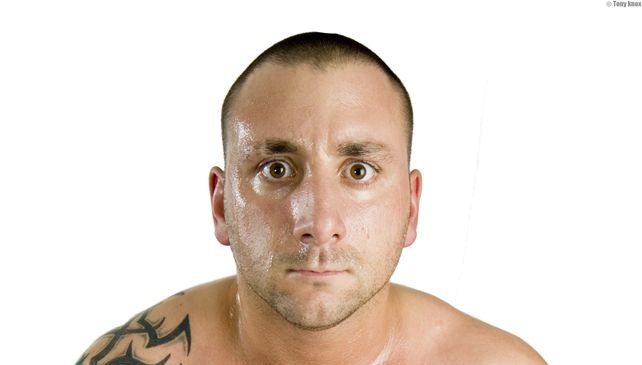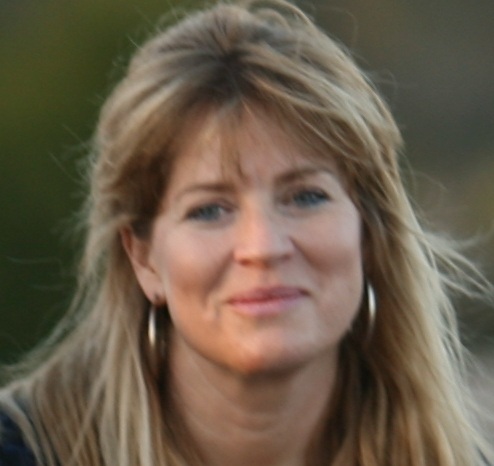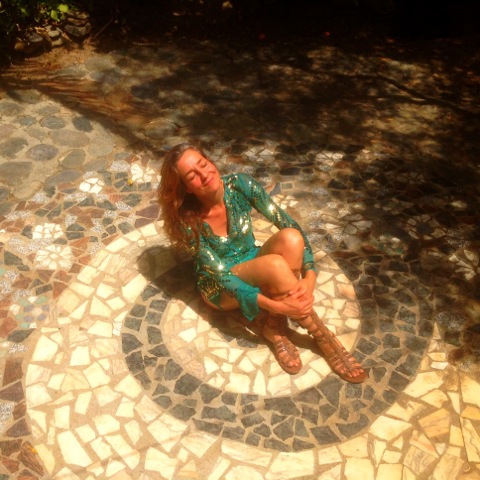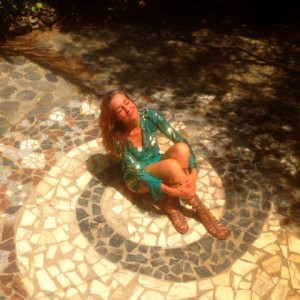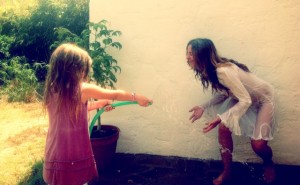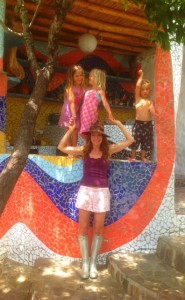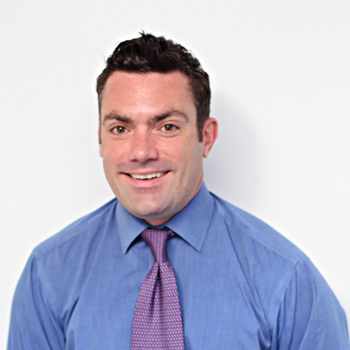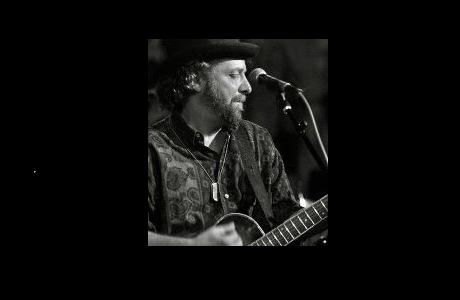Paul Zollo is an acclaimed songwriter, writer and photographer. Having interviewed some of the biggest and best names in music and writing one of the premier books on songwriting, and amidst numerous musical, writing and photography pursuits, he took the time to answer some of our questions about his career so far.
Tell us a little about yourself
Born in Chicago, raised in Wilmette, Illinois, went to Boston University in the great city of Boston. I love music, Charlie Chaplin, riding my bike. Have lived in Los Angeles since 1982 and I love it. Am married to Leslie Diller Zollo, who is an artist, and we have one child – our son Joshua Zollo. We also have six cats.
You are both an accomplished writer and musician; your band The Ghosters was named The Best Unsigned Band in Los Angeles in 1993 and you have since recorded solo albums including a duet with Art Garfunkel. Would you say you are a musician or writer first and foremost, and why?
I am a songwriter. Writing songs – and singing and recording them – is the most important thing in my life. That being said, I love the other work I do – writing and photography. It’s all part of the same thing, creative
expression, and all creative work, I find, leads me to do more. Taking pictures is great for my songwriting, and it’s a joy. So I’m happy doing all of it, but nothing matters more to me than songwriting.
Did you always have ambitions in music and writing, or has it just turned out that way for you?
Since the summer I turned 11, all I ever wanted was to be a singer-songwriter. I wrote my first song that summer of 1969, and never stopped. At that time songwriting seemed like the most fun and the most magical pursuit there is. Prior to that I liked the idea of being an astronaut – primarily for the weightlessness in outer space, which seemed like a lot of fun. But I got over that. And to this day I love songwriting with the same passion I had then, and I’m really glad I am still a songwriter, that I didn’t lose that somewhere. I became a music writer when I moved to L.A. in 1982 just to pay my bills and try to afford being a musician. I had done some journalistic writing before then, in college. Did an interview with Woody Guthrie’s wife Marjorie Guthrie in college, just so I could meet her. I went to work for her in NYC right after college, but just briefly, and mostly so I could be with Woody’s notebooks and crayons and pencils. Marjorie was a wonderful lady, and I was so happy to get to know her.
First job in L.A. was in a Hollywood recording studio first and while there I got my first stories published. Also had a job writing radio dramas and radio documentaries, sort of. In ’87 the National Academy of Songwriters in the heart of Hollywood hired me to be editor of what was a newsletter then, a calendar of events. It was called SongTalk. It was on newsprint and with few ads – so we had a lot of space to do stories. The director of NAS was a great guy named Kevin Odegard, a musician who performed with Dylan, and a man of real vision. He had somehow invited many of the world’s greatest songwriters to become Gold
members and donate money.
So I asked him if we could invite these people – people such as Paul Simon, Randy Newman, Prince, Burt Bacharach – to do interviews. He said I could try. So I did, and for my first issue I had Frank Zappa! Also Livingston & Evans, the legendary writers of “Que Sera” and “Silver Bells” and other great songs.
And it went from there. My second issue had Randy Newman, who I adore and am proud to say has become a friend. I have interviewed him many times since then. But that first one – we connected well cause I know his work so well, inside and out, and so revere him – it became a wonderful interview, to this day one of the best I’ve ever done. The industry really noticed it. It put us on the map. And from there I interviewed so many legends of songwriting – Paul Simon, Bob Dylan, Leonard Cohen, Harry Nilsson, Pete Seeger, Sammy Cahn, Willie Dixon, Laura Nyro.
The list goes on. And it’s an intentionally diverse list, in terms of genre and generation, because the ruling idea was always based on Pete Seeger’s quote to me, “Songwriters are links in a chain.” The understanding that although the industry segregates songwriters into separate genres and separate bins – so as to market them – that all songwriters are connected, building on the work of what came before. That regardless of genre or era, all these people are doing the same thing – combining language and music to create songs. From the start I always intended to collect these interviews into a book. Songwriters On Songwriting was an idea I had for many years before it was realized, and then it was published in a small version with Writer’s Digest books before first before being expanded and then again by Da Capo Books, NYC.
One look at your accomplishments in the past 20 years and people could consider you one of the most prolific creative people ever, with envious achievements in many fields – the ability to work with Art Garfunkel in one area and then compile a book with interviews of such people as Paul Simon and Neil Young in Songwriters on Songwriting is not something most
people have the fortune to do. What do you think it is that has enabled you to accomplish these things, beyond hard work?
That’s very kind of you to say. The only answer is persistence. And hard work, yes. I’m glad from your perspective it seems like a chain of unbroken accomplishments, whereas I’m very aware, of course, of all the things that didn’t work out, the interviews I didn’t get, the duets I wasn’t able to sing. But it is very rewarding to see the work expand – and to matter – after all these years.
In terms of getting great interviews, hard work and persistence both paid off in that I always worked hard on each interview, doing an intense amount of research into the work and wisdom of each songwriter. So that when I went into each interview, the subject knew of my knowledge of and reverence for their work, and that elevated the conversations. Some songwriters, like Paul Simon and Laura Nyro, I knew their work from a lifetime of knowing and studying their work inside out. But it took me years to convince either to do an interview. But when Simon did, we really connected – and we continued the interview in NY and L.A. at first – and then he invited me to write liner notes for his first boxed set in 1994 – and so I got to know him, and interview him many times. I just interviewed him last year for his most recent album.
I also had the remarkable experience of playing him some of my songs, in his apartment, a few years back. He was pretty critical!
Similarly with the great Laura Nyro, one of the world’s most inspirational and beautiful artists, she resisted for a long time – I think because she was afraid my question would be “What happened to you – you used to be so great?!” Whereas my questions were “How did you write that song? It is a miracle.” And so when she realized how much I loved her, and how well I knew her work, we had an amazing talk, and she used parts of it for her song book and her boxed set as well. So it was hard work that led to the interviews becoming as good as they could be – Tom Petty said I would come “ridiculously prepared” which I liked
– and that, in turn, led to other great songwriters knowing I would do a good job, and consenting to do an interview.
As for dueting with Art Garfunkel, that was a dream come true unlike anything ever in my life. I got to know Artie from interviewing him several times, and not only is he one of the planet’s greatest singers – a genius
with harmony singing, really – he’s a very very smart man, very funny, a poet. He’s more than most people know, I think. And he very kindly agreed to do the duet with me – and did it in Hollywood at the studio on Hollywood Boulevard where I was recording. And he could have done the whole thing fast and be done in 30 minutes. Instead he spent four hours working on it, crafting harmony parts for each verse. He brought
such love to it, it blew me away. To this day when I hear it, it just kills me. It’s on my song “Being In This World,” a song influenced by the beautiful books of John Fante. And Artie’s part on it is so beautiful.
I am presently working on a new album, my first for Trough Records, to be called Universal Cure. It will be out in October of this year. And happy to say the great Terre Roche – of the Roches – sings a duet on my song “Maggie.” Terre actually sang with Paul Simon a few times too and also on Robert Fripp’s Exposure. And she did a gorgeous job on this. Like Artie, she’s just one of those miracle harmony singers. And also a very sweet, generous person – who put a lot of time into it.
Also I have Tomas Ulrich on cello on that song – he is a brilliant cellist, called ‘the Miles Davis of cello’ – he also played on the song with Artie. And fantastic musicians throughout like Mike Baird, Bob Malone, Billy
Salisbury, Aaron Wolfson, Chad Watson, and beautiful harmonies by the very great Earl Grey and Lisa Johnson, who are currently in The Zollo Band.
Songwriters on Songwriting has been called “the ultimate book about songwriting” and is used as a textbook in courses in such universities as UCLA and Berklee. What gave you the idea to write such a book?
To be honest, the first idea came from a book by Bill Flanagan called Written In My Soul. A book of interviews with songwriters. Bill used to be editor of Musician magazine – and thanks to him I used to do a lot of
writing for Musician, which was a thrill as it was one of the best American music mags ever. Bill went onto VH-1 and other great stuff – a very fine writer and thinker. But not a songwriter, so his interviews didn’t get
into the depth of songwriting process I yearned for. So when I got the job as editor of SongTalk, I made a big list of all the songwriters I wanted to interview. Some, as mentioned, were already Gold members of NAS Many great songwriters were not – but through my work, many of them joined, such as Yoko Ono, who after I did a cover story on became a member – and also donated a lot of money. Of all these people, Yoko remains perhaps the most generous. I’d say she is the most misunderstood songwriter I have ever met. People ascribe dark motives to her life and history – which is so so far from the truth. John Lennon loved her with good reason!
So I made this big list and very gradually – over about 10 years in that job – I interviewed many on my list. Writer’s Digest books of Cincinnati asked me to do a book for them called The Beginning Songwriter’s Answer Book. I agreed to do it if they would do Songwriters On Songwriting. Which they did. So I did the first version of the book with them, a pretty small version, with only about 20 interviews. Subsequently, I signed with Da Capo Books in New York to do a new version of it, and following that we did another expanded version which came out in 2000. I did interview most of the songwriters on my list – but there are still a few I have yet to interview, despite much trying over the years – so the work goes on. I am Senior Editor with American Songwriter mag right now – and my own web magazine is Bluerailroad (www.bluerailroad.com) where the work is published until being in the next volume.
You have been fortunate enough to interview such prestigious and influential songwriters as Frank Zappa, Bob Dylan and Tom Petty. How did you decide who to approach for interviewing and what prompted this venture?
I approached those songwriters who influenced and impacted my own life. And then those who I didn’t know as well personally but I know they had been impactful over the years. My main criteria was and is to celebrate those songwriters who have written work which lasts, work which has sustained over the years. If you write one song like that which lasts – which matters, which people love even after the season of its arrival – that is important. And if you have done that many times, as have all of these songwriters, it’s miraculous, really. I happen to love a lot of music – I love Pete Seeger and Frank Zappa and Dylan and Brubeck – and Sinatra – there’s a big range, and as I said, it’s all connected by this singular pursuit of songwriting. Then as editor of SongTalk – and from there I was with Performing Songwriter mag for a while and now American Songwriter mag – I got pitched a lot of stuff from record companies. So in addition to all these stories with legendary songwriters in my book, I have done countless stories on bands and songwriters that most people never heard of, or didn’t last. A lot of people I wrote about I did think would last – and have been surprised sometimes by which careers spark and soar – and which ones don’t.
I met and wrote about a lot of famous songwriters long before they became known – such as Jewel, Tori Amos, Katy Perry, Joan Osborne, Siedah Garrett, Alanis Morissette, Glen Ballard – and it’s been fascinating to see which ones become big – some huge – and some not at all. So I’ve written many more stories and interviews than the ones which are in the book. For that, I had to choose what I considered the most influential
and impactful of all these songwriters.
Have you interviewed everyone you have tried to talk to, or have you suffered many rejections?
No, I have not interviewed everyone I would like to. Not close. There are several which have been on the top of the list for years, but for whatever reason, it’s been impossible to ever arrange an interview. Sometimes it is all set and then is cancelled. It’s frustrating and I don’t like to linger on it. That being said, it is a great joy when I finally get to interview someone I have wanted to for many years. It is hardly ever the songwriter themselves who has anything to do with it – it’s their gate-keepers – managers and publicists. But I never give up. Very happy to say I interviewed Chrissie Hynde – took me forever – and also Patti Smith recently. Both brilliant people and great interviews – but took forever. Also Leiber & Stoller – and recently Don McLean! Also James Taylor, Stephen Stills, John Mellencamp. And the very great Matisyahu, who I adore.
So the others I won’t name here, but I won’t give up on trying – cause I want them in Songwriters On Songwriting, Vol. II.
Songwriters… in particular has been expanded a few times already, and you have since interviewed more people. Do you think there will ever be a final version, or will you keep updating it for as long as musicians agree to share their opinions with you?
We updated it as much as we could – just over 700 pages. So now as mentioned I’m working on Volume II, which has been in the works for some time. When that is done, that will be it. I do have other books I am working on.
Of all the people you have interviewed, who was your favourite – for whatever reason – and is there anyone on your wish list for a future interview or collaboration?
I truly can’t name just one. So many amazing experiences for me. I have so idolized, admired and respected these folks for so long, it’s a thrill unlike any other to be able to sit down with them and ask questions. Dylan was maybe the most exciting of all – but Paul Simon was amazing, as was Leonard Cohen and not to mention Zappa, Pete Seeger. Randy. Becker & Fagen. Going into John and Yoko’s home to talk to Yoko at the Dakota, wow. Driving around the hills of L.A. with Harry Nilsson listening to demos of him and Lennon. I could go on and on. All of these have been very meaningful and extraordinary; I’ve tried to get that across in the intros, the texture of those times. In my Dylan intro I put it in terms I was thinking in, seeing Bob Dylan’s guitar, Bob Dylan’s moccasins. And sitting there with him – as I wrote – to me it felt not unlike sitting with Shakespeare, knowing the impact and breadth of this one man’s work on our lives, our culture, our history.
The two main names on my list I have been trying to set to forever is Joni Mitchell, Stevie Wonder and Bruce Springsteen. Make that three names! I have met all of them – and Joni even agreed at one point to do an interview – and I am a thorough expert on all three, and would SO love the chance – also Paul McCartney. Four! McCartney too I have met – and have tried hard for a real interview for a long time – so the pursuit persists. I never give up.
Your writing extends beyond talking about songs and musicians, and aside from your editor roles for magazines and your contributions to such magazines as Rolling Stone and Variety, you have also written a novel entitled Sunset and Cahuenga. Do you have any plans for more novels, or books that deviate from your passion for music?
Sunset & Cahuenga is a novel based on my true – and truly crazy – experience working in a Hollywood recording studio at that title location in the 80s. Not sure I’ll ever write another novel again. It remains unpublished.
I also wrote Hollywood Remembered, which is an oral and narrative history of Hollywood – and more. I love Hollywood and its history – and so this was mostly a non-musical book – although I have chapters on Else Blangsted – who was a legendary music editor for films, as well as David Raksin, who was a great film composer and worked with Chaplin.
I do have plans for several more books that are musical – which isn’t the question I know – but similar to the book I did with Tom Petty, Conversations with Tom Petty, I am planning to do similar books with Paul
Simon, Randy Newman, Rickie Lee Jones, John Hiatt. These books are kind of under-way in that I have interviewed each several times; I could put out a Simon book now, but won’t yet.
Also working on a documentary about John Prine presently which will be very great – and hoping to do a book with him as well. For a long time – six years now – I have been working on a book of my
photographic portraits which will be called Angeleno. It will have portraits of every kind of person who lives here, which is every kind of person alive, really – the very rich and famous, the homeless, and everyone
inbetween. I have yet to get a publishing deal for this one, but I am dedicated to this book being what I want it to be, and though it’s not yet in the world, I can see that it will be. And I am excited by it.
In addition to your music and writing, your photography has been displayed at galleries in New York and Los Angeles, you have photographed more celebrities than most people could mention, and you are working on a photograph book now. How do you find the time to do so much work in multiple areas?
Well, I don’t have a daily commute, and I don’t talk on the phone much. So there is a lot of time in each day, and as the years pass, the work accumulates and it seems the artist has been working all the time! People
think this about Woody Allen, because he’s so prolific. A movie every year. But as he always explains, that leaves him plenty of time to go to a basketball game, or out for dinner or a movie. It’s just about dedication,
about keeping it going. I wish I was more productive, and am endlessly aware of what I haven’t finished or accomplished. There’s a long way to go. But I am very happy that it appears that I am doing a superhuman amount of work. I’m not, really.
What music, books and photography does Paul Zollo enjoy on his downtime, when not creating his own projects?
I read mostly non-fiction, and for about the last seven months, I read only books about Elvis. Both because I was writing a song about him (“Elvis in Aurora”) but also because I get obsessed with certain subjects, and want to read everything I can. Of which Peter Guralick’s two books on Elvis were by far the best, great books.
Right now I am reading Miles Davis’ autobiography and really enjoying it. I’ve been reading poetry by Phillip Larkin also. My son got me a book on the making of The Wizard of Oz for Father’s Day which I loved, it was great.
Musically I am really into Matisyahu right now – I think he’s doing things nobody else is doing – and his work is just extraordinary. I interviewed him again for the second time recently – and have seen him in concert a few times – and I adore everything about what he does. His new album is Sparkseeker with the song “Sunshine” for his son, which is my favorite song of this summer of 2012.
I’ve also been listening a lot to Warren Zevon. Met him but never interviewed him, and have gone through a true obsession with his music. Just can’t get enough of it. Through every chapter of his career, his songs were so strong and great. And in that place where I like to write, his content is unexpected and delightful. Writing songs nobody else ever wrote – about stuff nobody else touched – which to me is the ultimate. I tire of music eventually, and yet I find I do not tire of his songs – I always love them and want to hear them. My son, too, he loves Zevon. And also Matis.
Really loved Amy Winehouse – and also Mark Ronson, who produced her – his two albums are two of my favorite albums ever.
Listening to a lot of John Prine too, as I am working on a movie about him. And always in my iPod are my faves – Dylan, Simon, Rickie Lee Jones, Randy Newman, Beck, Pretenders, Mose Allison. Steely Dan for sure. LOVE Steely Dan. And many more. Just reviewed a new album by Robert Morgan Fisher – Notes For a Novel – that is very great.
Photographically – I have always loved Diane Arbus – and have been very inspired and motivated by her approach and ideas and her work. I also really love Robert Frank and Weegee.
If you had to pick just one creative outlet for the rest of your life, what would you choose and why?
Songwriting. Nothing to me is more captivating, inspiring and exciting than writing songs. Photography is a very close second. Songwriting is harder for me – it takes way more brain and heart and soul. It takes a lot. But to write a song that you love, that you feel is great, that you want to sing every time you perform, nothing’s better than that. Nothing moves me as much in my life as music – songs, primarily – that great intersection of words and music. So to be a part of that world – that’s all I’ve ever wanted – and I have no doubt I’ll be writing songs for my whole life. I sure hope so.
